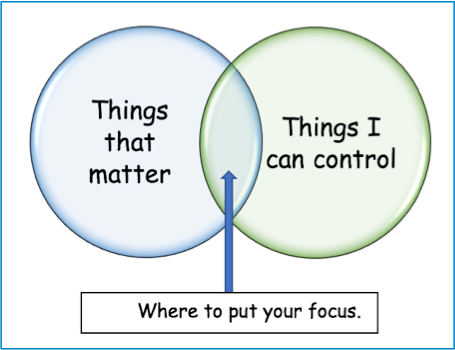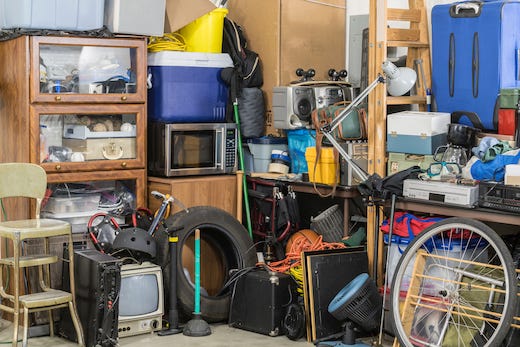ARTICLE: Use Summer Break to Rejuvenate
Summer provides some good time for teachers to replenish their reserves and restore their momentum for the next school year.
Dear paid subscribers: Thank you! You’re providing essential support that helps MiddleWeb.com continue our commitment to publish the voices of middle grades educators – and to update and curate our thousands of articles and reviews written for and by educators who support kids in grades 4-8.
If you are a free subscriber, we could really use your help; consider a paid subscription when you can. ($5 month; $50 year).
All our subscribers receive our free biweekly newsletter showcasing teaching and leading topics you care about. What follows here is one of the occasional full-text articles we share, plucked from a list of all-time popular posts.
★ MiddleWeb Substack Full-Text Article ★
Use Some Time During Summer Break To Heal
By Debbie Silver
Upon returning to school after a rare absent day I remember a colleague asking me, “Were you sick?” I told her honestly, “No, I wasn’t technically sick, but I did need a chance to heal.”
She nodded knowingly and said, “Good for you, I hope it helped.” It did help. I had awakened the previous morning feeling like the classic hamster on a wheel running and running and getting nowhere.
It seemed my life as a teacher, a wife, a mother, a friend, and just about every aspect of my life was spinning out of control. Spending the day alone felt like getting a momentary break from the cycle, and it gave me a chance to pause, take a breath, rethink, and restart.
Granted it’s preferable for teachers to use school breaks rather than school days to recharge and rejuvenate. Perhaps instead of using summer to squeeze in every graduate hour we can gain, to attend workshops that do not interest us, to teach summer school to finance our “teaching habits,” or to engage in activities that only further drain our personal resources, we would be better served to take at least part of our time away from the classroom to do things that restore our energy and renew our sense of self.
Summer provides a good time for teachers to replenish their reserves and restore their momentum for the next school year. Here are a few suggestions for positive, proactive steps that can help educators slow down, feel better, gain a sense of control, and prepare for a better new school year:
Figure out where to focus your time and energy.
Make a list of things that matter. This list should include what you consider most important to you as a person as well as you as a teacher. Write down all the things, large and small, that are significant to you.
Next write down a list of the areas in your life over which you have direct control through your choices and/or your efforts. Compare the two lists (or make a Venn diagram) to find where your lists overlap. Vow to focus on things that matter and you can directly influence. Let go of the rest.
Get your annual check-ups.
Go see your family physician, your eye doctor, your dentist, your dermatologist, and every medical person you have been “meaning to see.” Get your annual physical, your mammogram, your pap smear, your prostate check, your teeth cleaned, your eyewear updated, your hearing checked, a sleep study done, or whatever you’ve been putting off for months or years.
Merely getting a clean bill of health makes the visit worth your time because you will have the satisfaction of knowing your body is functioning as it should. And if there is a problem, it is always better to take care of it sooner rather than later.
Putting off taking care of yourself just adds to your energy-draining feelings of dread, stress, and helplessness.
Learn to use (or continue) mindfulness practices.
Mindfulness is an ancient concept that teaches us about how to be fully present in the moment without being distracted by past anxiety or future uncertainties. It is a way to become aware of our habitual reactions and emotional triggers as we practice a method for calming our minds and our bodies.
Extensive research has shown that regular mindfulness practice has positive benefits – physically, mentally, emotionally, and spiritually. If you have never practiced mindfulness, watch Jon Kabat Zinn’s short YouTube presentation on this very simple concept. You can find lots of additional information at mindful.org.
Make implementation plans.
Do your “best laid plans” constantly get derailed? All those great intentions you have for the next school year – like to eat less junk food, drink fewer sodas, skip the late-night TV watching, avoid negative colleagues, eschew gossip, etc. – will have greater traction if you develop strategies now for how you will deal with potential triggers for behavior you want to avoid.
Write down your “if-then” strategies to mentally rehearse how you will change your behavior.
Examples:
If I happen upon a gossip or a character assassination session, then I will immediately excuse myself by saying I have something important I forgot to do.
If I feel like I have to have a soda, then I will drink ice water with lemon and see if that will satisfy my craving.
If I find it hard to turn off the TV at night, then I will set it on record and read in bed until I get sleepy.
Implementation planning helps identify situations that may wreck your well-meaning objectives, and it gives you a chance to prepare for probable challenges.
Declutter your physical space.
An immediate way to begin the healing process is un-muddling the physical space we occupy both at school and at home. As you plan for a more focused, relaxed environment, you will need to get rid of things that don’t match your vision of how you plan to simplify your life.
Taking time this summer to sort through drawers, closets, and shelves, tossing out things you no longer need or want, will give you a sense of control and direction. Donate or dump items that no longer have value to you or that serve as a reminder of things you don’t intend to do. (Who needs the guilt from all those workshop hand-outs you know you are never going to look at again?)
Convert paper files to digital ones. Snap pictures of sentimental items that take up too much room or require too much care. Create empty space on floors and shelves to instill a sense of calm. Make your environment work for you and not vice-versa.
Create a gratefulness journal.
It is impossible to hold negative thoughts at the same time one is feeling true appreciation. Gratitude provides a mental device that helps us focus on the positive things in our lives. Just taking the time to write 3-5 sentences of sincere gratitude each day has proven to have both short-and long-term benefits to attitude and feelings of well-being.
Summer is an excellent time to fashion some sort of daily log for recording statements of gratitude the next school year. And why not get a jumpstart on “healing” yourself by writing some this summer?
Dr. Debbie Silver is a learning consultant, life coach and humorist with over 30 years of experience as a teacher, staff development facilitator, and university professor. As a classroom teacher, Debbie won numerous awards, including the Louisiana Teacher of the Year. She speaks worldwide on issues involving education and is a passionate advocate for students and teachers.
Debbie is the author or co-author of four bestselling books, including Deliberate Optimism: Still Reclaiming the Joy in Education, 2nd Ed.(2023); Teaching Kids to Thrive: Essential Skills for Success, and Fall Down 7 Times, Get Up 8: Raising and Teaching Self-Motivated Learners K-12, 2nd Ed. (2021).






